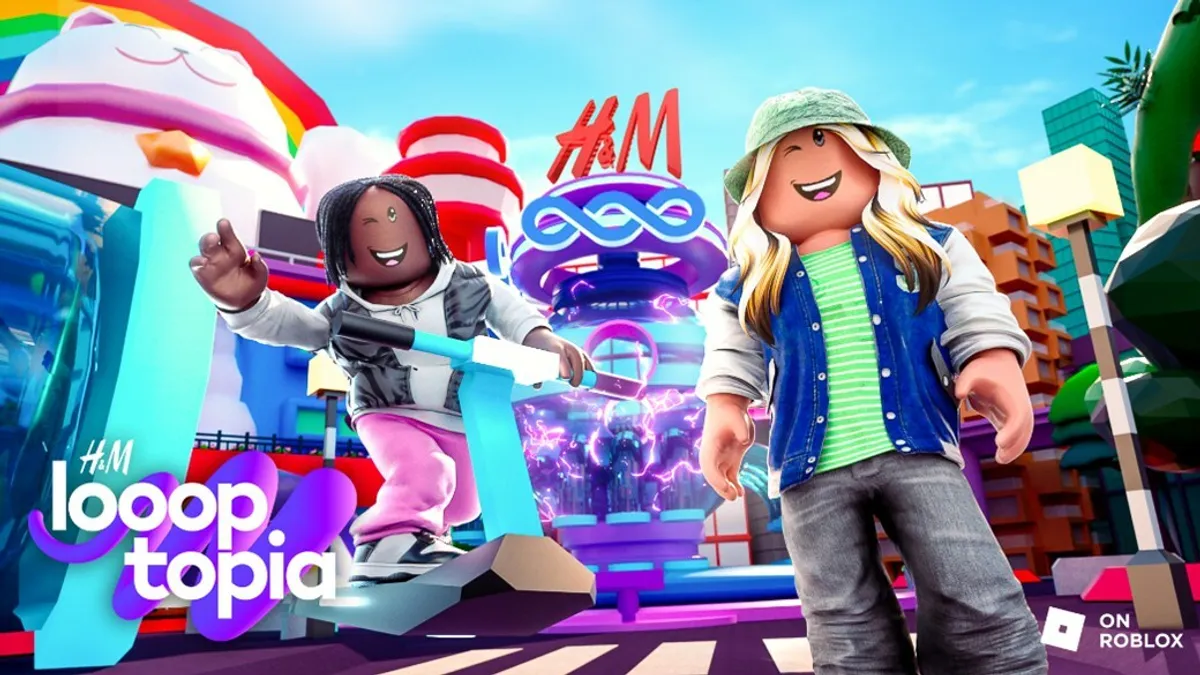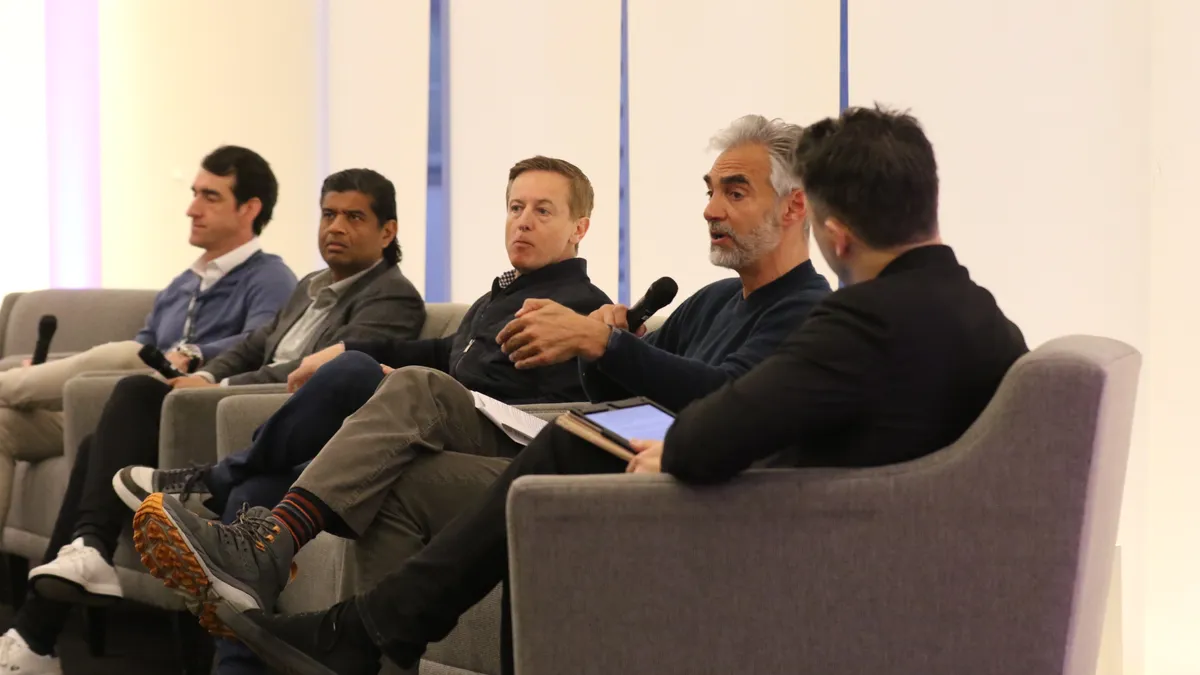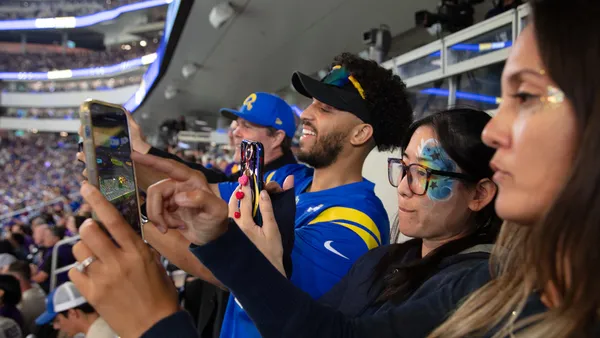Dive Brief:
- H&M is promoting self-expression and sustainability with a new virtual realm on Roblox coined the H&M Loooptopia Experience, according to a press release.
- Users in Loooptopia can explore a variety of alternate worlds and interact with mini-games, styling sessions and live events to gather ingredients and create clothing items that can be worn by their digital avatar. Players can trade clothes with friends or recycle them to earn “super-rare elements.”
- The activation includes a partnership with metaverse studio Dubit to craft an experience focused on circular actions, a choice meant to complement other recent efforts by the fast fashion retailer to emphasize circularity and sustainability.
Dive Insight:
H&M is upping its bets on emerging digital channels with the launch of Loooptopia, joining numerous others, including Gen Z retailer American Eagle, who have made Roblox a key marketing asset in an attempt to connect with younger shoppers. The effort, which largely focuses on self-expression through clothing, could resonate with the 57% of Gen Z who report they feel freer to express themselves through gaming than they do in real life.
"People who shop and wear H&M garments and accessories are increasingly spending time in virtual spaces and digital worlds,” said Linda Li, head of customer activation and marketing for H&M Americas, in the press release. "In the coming years, H&M will continue to explore this fast-growing expanse of virtual and augmented realities.”
In Loooptopia, users begin in a city square setting and can explore a variety of alternate worlds like Rainbooow Fields, Neon Studiooo and Fabric Fooorest. Throughout the experience, players can gather the ingredients needed to craft various clothing pieces that they can use to style their online avatars and which can be complemented with accessories and shown off through dance moves, music and special effects on a runway. The experience also encourages users to interact with one another through experiences like taking selfies and trading clothes.
Meant to promote sustainability, players in the realm can also recycle their clothing creations in exchange for elements that can be used to help them stand out for their runway appearance. In addition, H&M also focused on themes of circularity for the experience, both literally and figuratively. The focus on sustainability could help the fast-fashion retailer battle doubts about its green promises, including criticism last year from a Norway consumer watchdog agency due to the brand’s use of the Higg Materials Sustainability Index, which was said to likely go against the country’s rules on sustainability claims.
Making good on environmentally conscious promises could make a big difference for retailers. According to a 2021 study by Simon-Kucher & Partners, 60% of consumers note that sustainability is an important factor in purchase decisions. H&M has made additional efforts related to the cause, previously focusing on circularity for a metaverse-inspired clothing collection launched in December last year which included some items made with recycled polyester fibers from the brand’s in-store garment collection program. The effort was tied to the brand’s Innovation Stories initiative, which launched in 2021 to promote sustainable materials, technologies and production methods.














